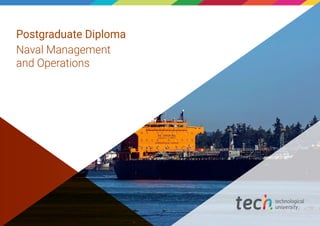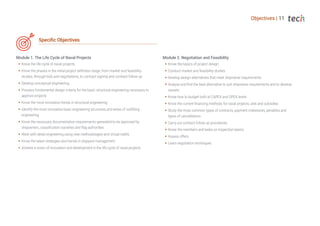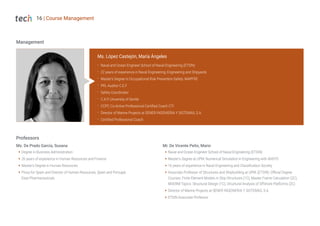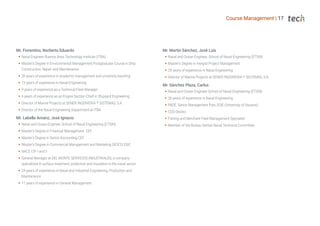The document outlines the structure and content of a Postgraduate Diploma in Naval Management and Operations. The program is divided into 4 modules that cover the full life cycle of naval projects, from conceptual design through construction and shipyard management to vessel operation. Key topics include negotiation, budgeting, engineering, production, quality control, financial management, safety, and continuous improvement. The course aims to educate professionals using case studies, practical exercises, and content from experienced instructors in the field.





































